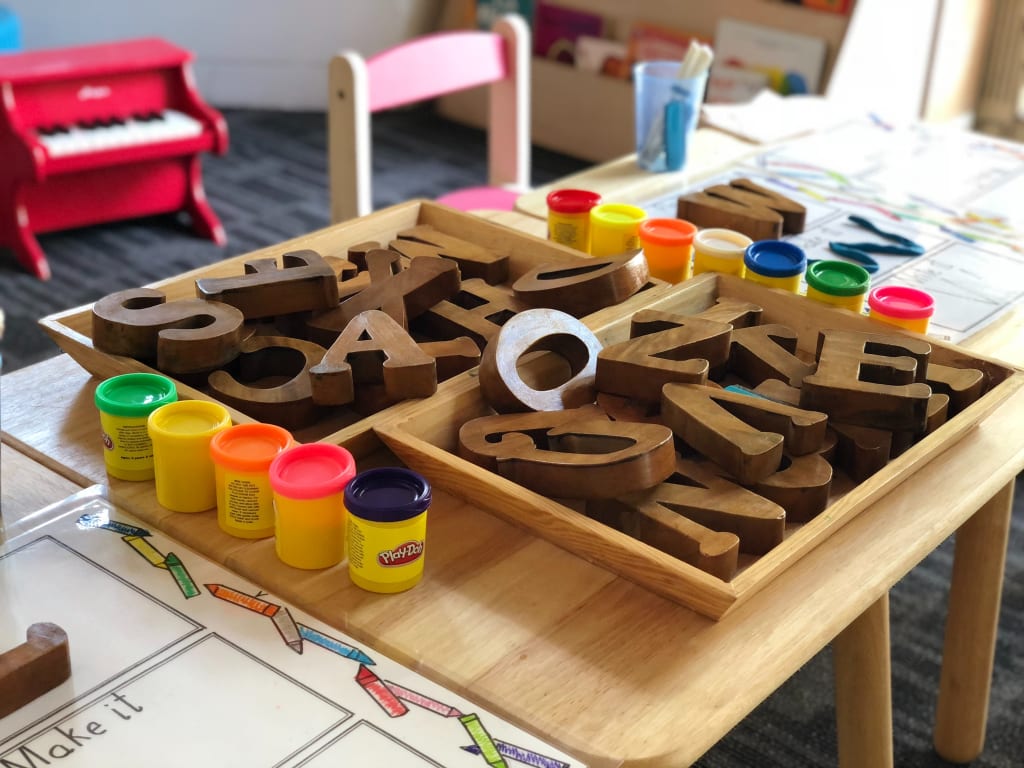The Most Effective Method to Tell If Your Kid is Prepared for Preschool
Most preschools will begin tolerating children around the age of two, but this does not imply that your child is magically prepared for preschool when he reaches that age.

Most preschools will begin tolerating children around the age of two, but this does not imply that your child is magically prepared for preschool when he reaches that age. The status for preschool having best preschool learning videos have more to do with where your child is in terms of formativity. Is it safe to say that he is socially, emotionally, physically, and psychologically prepared to participate in a daily, organized, educational program with a group of other kids?
Despite the fact that it's appealing to look for a quick answer to this question, for example, perusing a rundown of aptitudes and saying, "Yes, my kid can do these things, he's prepared," that strategy isn't foolproof. The best way to choose is to spend time thinking about your child and talking with other people who know him well, for example, your partner, your child's specialist, and your child's parental figure.
Is your kid genuinely autonomous?
Preschoolers are expected to have certain essential skills. Most preschools, for example, will require your child to be potty-trained. Your child should also be able to meet other basic needs, for example, washing his hands after painting, eating his lunch without assistance, and sleeping alone.
Has he invested energy far from you?
If your child has been watched over by a sitter or a relative, he will be better prepared to isolate from you when he starts preschool. Children who are accustomed to being separated from their parents frequently skip right into preschool with barely a backward glance. If your child hasn't had many opportunities to be away from you, you should plan some - a weekend with grandmother, for example, or a day with your sister and her children.
In any case, don't worry too much if you can't resolve your partition issues ahead of time. Many children leave Mom or Dad unexpectedly to attend preschool and do well.
Allow your child to change in short increments if possible. Many preschools will let you drop off your child for an hour or two during his first few days there. Allow your child to gradually work up to an entire day as he adjusts to his new condition.
Would he be able to deal with ventures without anyone else?
Preschool typically includes a plethora of expressions and specialties extends that necessitate fixation and the capacity to center around a single errand. If your child enjoys drawing at home or is interested in puzzles and other activities that he can do alone, he is a good candidate for preschool.
Regardless of whether he's the type of kid who needs help with everything, you can start preparing him by setting aside time for him to engage himself for a half hour or somewhere in the vicinity. While you're doing the dishes, encourage him to make animals out of dirt, for example.
Gradually progress to longer periods of solo play. Your goal here is to keep yourself respectably engrossed in an action so that he can get individually without too much hand-holding from you.
Is it accurate to say that he is prepared to take part in gather exercises?
Many preschool activities, for example, "circle time," necessitate that all of the children in a class participate at the same time. These collaborations allow children to play and learn together while also expecting them to sit still, listen to stories, and sing songs. This can be extremely difficult for children under the age of three, who are normally active travelers and are not generally formatively prepared to play with other children.
If your child isn't used to group exercises, you can start introducing them yourself. Take him to story time at your local library, for example, or enroll him in a class, such as tumbling, to get him used to playing with other kids.
Is it accurate to say that he is accustomed to keeping a general calendar?
Preschools generally follow a predictable schedule: circle time, play time, snack, play area, and then lunch. There is a reasonable explanation for this. When similar things happen in the meantime every day, children tend to feel the most great and in control.
So, if your child doesn't keep a calendar and each day isn't exactly the same as the last, it can help to institutionalize his days before he starts preschool with preschool videos for learning. Begin by providing suppers on a regular schedule. You could also plan to go to the gym every evening or establish - and stick to - a sleep schedule (shower, at that point books, and bed).
Does he have the physical stamina for preschool?
Preschool keeps children occupied whether it is a half-day or full-day program. There are crafts to complete, field trips to take, and play areas to explore. Does your child benefit from these exercises, or does he struggle to transition from one thing to the next without becoming grumpy?
Another thing to consider is how and when your child needs to rest. Preschools frequently schedule rest time after lunch. If your child can keep going until that point, or even throughout the day like a breeze up toy, he'll be fine. If, despite everything, he requires a mid-morning rest, it will not be time to go to class.
You can begin to improve his stamina by ensuring he gets a good night's sleep. If you have some flexibility in your schedule, you may want to start him off in a half-day program to ease him into the bustle of preschool life, and gradually increase the length of his school day as he becomes more agreeable.
For what reason would you like to send him to preschool?
Consider your reasons for sending your child to preschool. Do you just need some alone time or child care for your child? If it appears that he is not yet prepared for the rigors of school, there may be other options.
Is it safe to say you're concerned that if you don't enroll him in preschool, he won't be ready for kindergarten? Most experts agree that there are numerous courses for kids to develop the skills required to be successful in kindergarten, including going to a good childcare center or spending quality time at home with you or another adoring guardian.
About the Creator
Amit Kumar
Full-time thinker & part-time writer...
Enjoyed the story? Support the Creator.
Subscribe for free to receive all their stories in your feed. You could also pledge your support or give them a one-off tip, letting them know you appreciate their work.






Comments
There are no comments for this story
Be the first to respond and start the conversation.